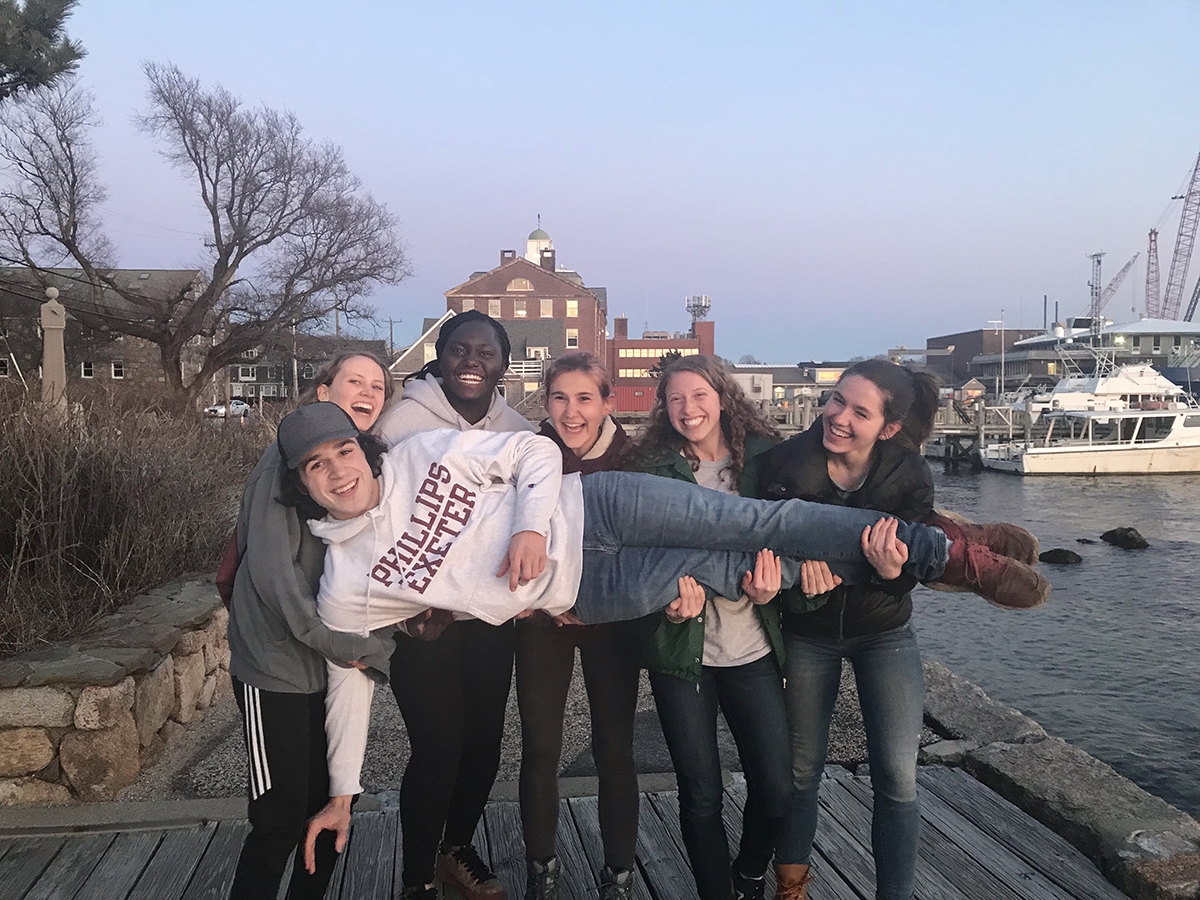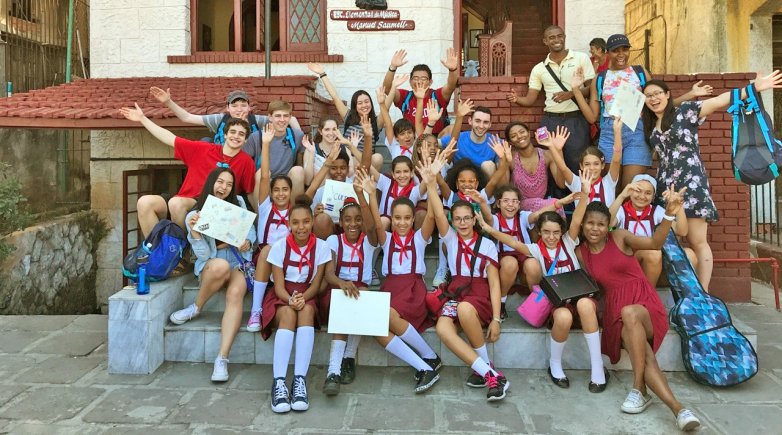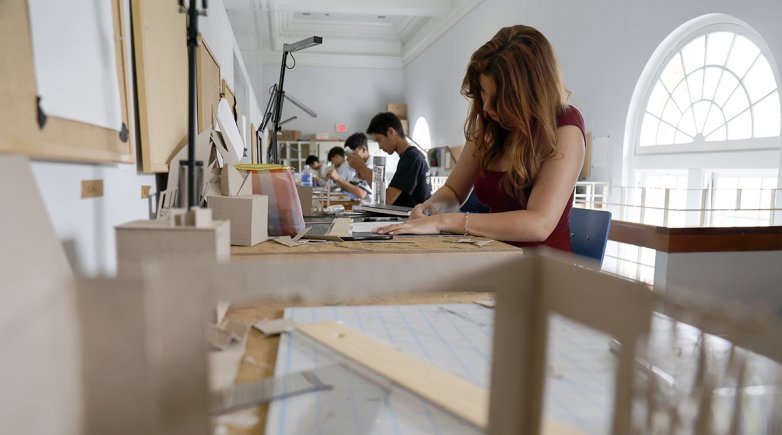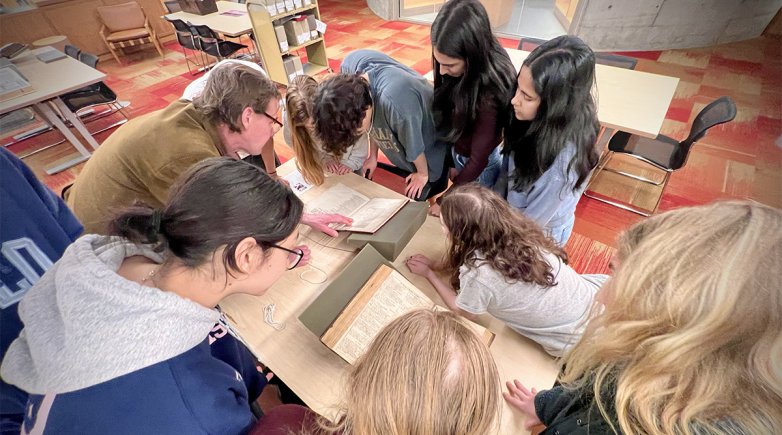Seeing the world on spring break
Dozens of Exonians venture across the country and around the world to experience the people, places and history.
Exeter students pose for a photo while exploring Havana, Cuba.
As part of Exeter’s commitment to global engagement, the Academy offered six spring break trips designed to provide immersive and meaningful opportunities in a variety of subjects and cultures.
Exonians studying French were invited to partake in a trip to Martinique, while students in Concert Choir and Chamber Orchestra conversed in the language of music in England. Others explored the vibrant scenery, culture and cuisine in trips to Cuba and India. Closer to campus, humanities students toured American Civil War battlefields, including Gettysburg and Antietam, while science students conducted biology experiments at the Marine Biology Laboratory on Cape Cod.
The varied, firsthand experiences will allow the participants to enrich their Harkness discussions — today and beyond.
Martinique
Ditching ski jackets and snow boots for T-shirts and flip flops, 12 Exonians visited the French-speaking Caribbean island of Martinique. Led by Modern Languages instructors Katherine Fair and Evelyn Christoph, the group’s stops included a tour of a banana museum, a hands-on culinary workshop in classic Créole cuisine and, of course, some time at the beach. While taking in a Carnival parade, the students were interviewed by a local television crew, with Cheikh Fiteni '21 flawlessly conversing in the country’s native tongue. Très bien!
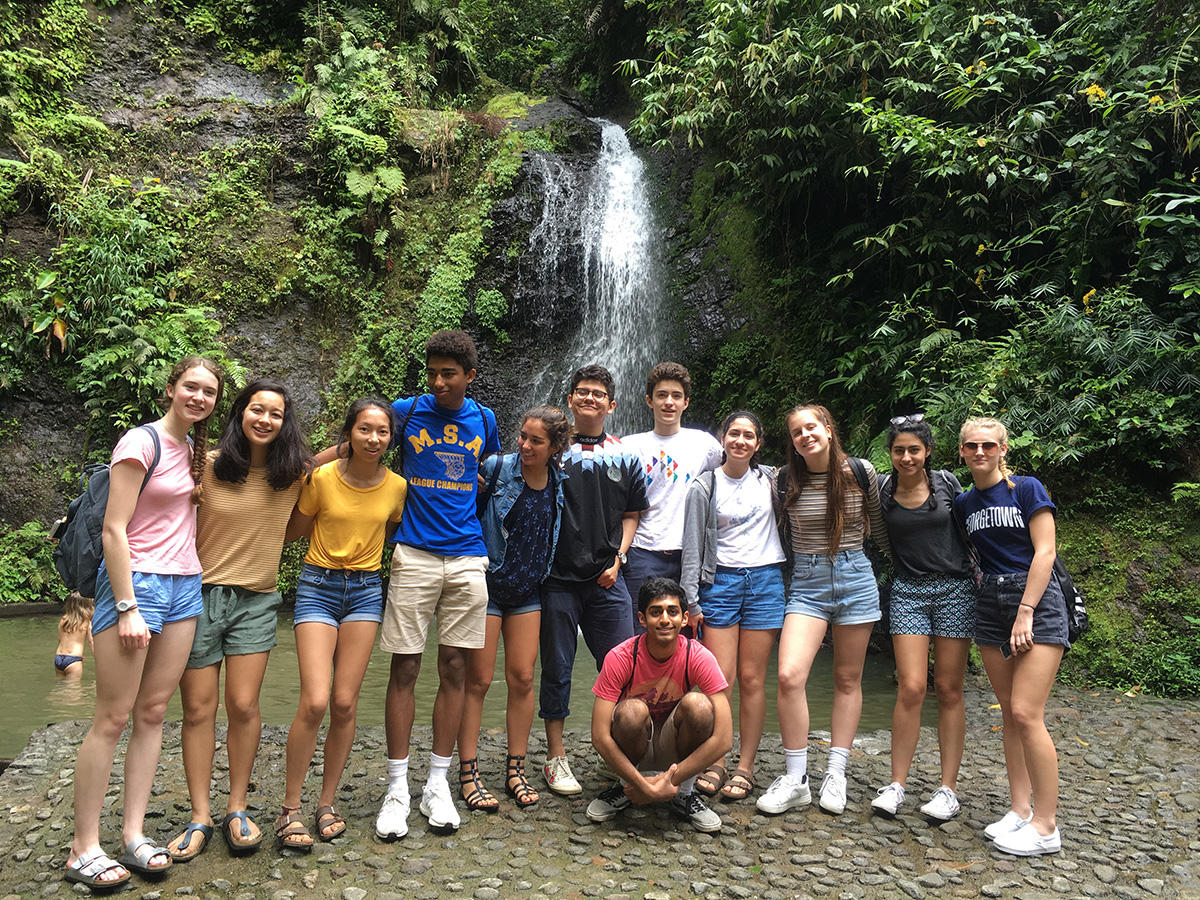
See more photos from this this group on the Academy's Instagram.
India
In a country of more than one billion people, it was a tale of two cities for the Exeter students studying in India. Guided by faculty chaperones Dr. Stephanie Bramlett and Dr. Hannah Hofheinz, the group started its adventure on the bustling streets of the nation’s capital of New Delhi. Students visited Gandhi Smriti — a museum dedicated to the life of Mahatma Gandhi, The India Gate and received traditional, temporary Henna tattoos. Traveling to the India International Center, students met with Dr. Karan Singh, the former Indian ambassador to the United States, for a discussion on geopolitics and American and Indian cultures.
After their time in the urban metropolis, the students repacked their bags to travel 730 miles southeast to Santiniketan, a rural town in West Bengal. Here students spent time interacting with villagers, learning the local customs of molding clay pottery, traditional dance and the art of alpana — a form of land art created using rice-paste drippings.
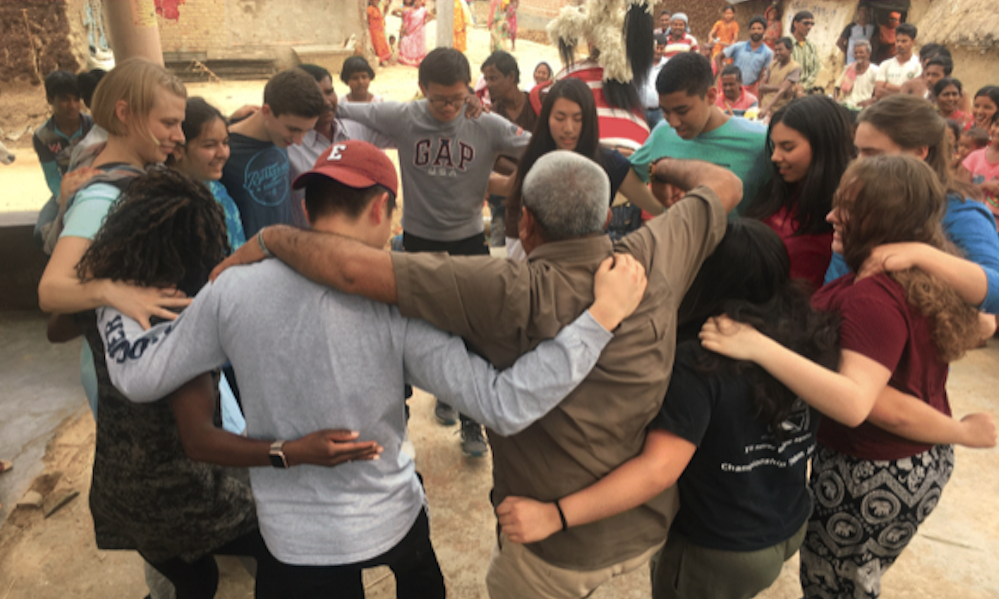
See more photos from this trip on the group's Instagram.
Gettysburg
Conducting on-site research as part of History Instructor Kent McConnell’s class, XI509: A People’s War: Digital Humanities in the Study of America’s Civil War Era, Exeter students ventured to multiple American Civil War battlefields. Starting in Pennsylvania, Dr. Peter Carmichael of the Civil War Institute marched Exonians on a tour of the grounds of the Battle of Gettysburg. From there, the group made its way to Charlottesville, Virginia, meeting with Dr. Edward L. Ayers, who discussed his work in the field of digital humanities. Students continued their tour of the region by visiting more battlefields, including Antietam, before retreating to Washington D.C. and a full day of research at the National Archives.
See more photos from this trip on the group's Instagram.
London
The weeklong “Teatime and Triptych Tour” got off on the right note as members of Exeter’s chamber orchestra and concert choir hopped the pond to England. Led by program director Kristofer Johnson, students immersed themselves in the country’s rich musical history and culture by collaborating with musicians from local schools, performing formal concerts and a workshop with internationally acclaimed conductor, Simon Carrington.
Upon landing, the group wasted no time taking in the sights and sounds of downtown London. Activities included tours of the Tower of London and St. Paul’s Cathedral and a ride on the world’s largest observation wheel, The London Eye. Students spent time collaborating with singers and musicians from Westminster School, which is affiliated with Westminster Abbey.
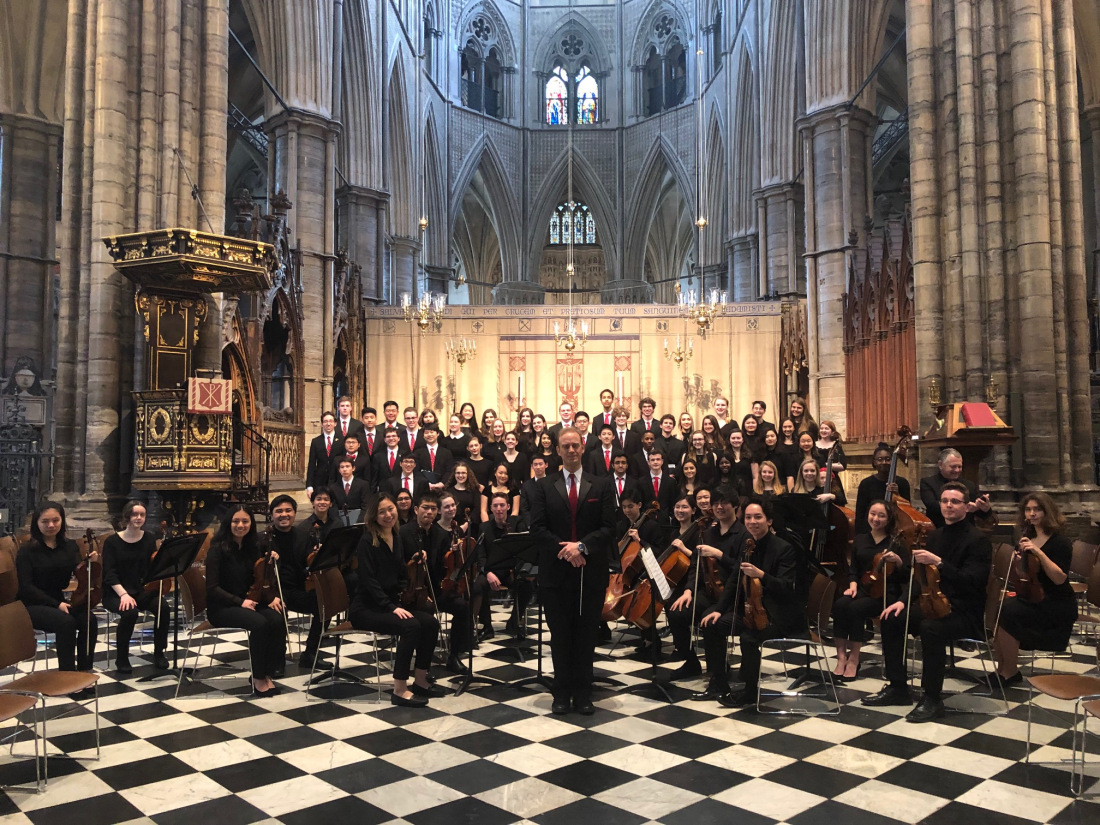
Days later the students returned to the renowned church to perform two movements from Tarik O’Regan’s “Triptych” during the school’s morning assembly. Following their time in London students set out for the English countryside, performing at Oxford University’s Church of St. Mary the Virgin and collaborating with choir and orchestra students at the prestigious Stowe School. A particularly memorable moment of the trip came when Exeter choral students thanked a local eatery's wait staff with an impromptu post-dinner performance.
See more photos from this trip on the group's Instagram.
Cuba
Sitting just over 100 miles from the coast of Florida, the country of Cuba has had a long and complicated political history with the United States. Immersing themselves in a land that, until 2015, was off-limits to American tourists, a group of 11 Exonians traveled to the island nation to explore the events that led to the decades of distrust between the two countries and the status of the Cuban economy since relations with the U.S. were normalized. Led by faculty chaperones, Sami Atif, Toyin Augustus and Aykut Kilinc, the group met with university professors, students, artists and farmers to get a holistic perspective on Cuban culture and commerce.
In the country’s capital, students enjoyed a walking tour of old Havana and spent time with the children of Proyectongo, an after-school community program focused on the arts, before traveling to the heart of the country to take in the beauty of the Botanical Garden of Cienfuegos. The group explored the country’s intricate history while visiting Museo Girón, a museum on the site of the 1961 Bay of Pigs invasion; a tour of a former sugarcane plantation, where students learned about the history of the slave trade in the Caribbean; and a trip to Museo de la Revolución, a museum dedicated to the Cuban Revolution.
A highlight of the trip was a post-sunset Harkness discussion along the waterfront grounds of a 500-year-old fort where the students reflected on the many experiences of their trip.
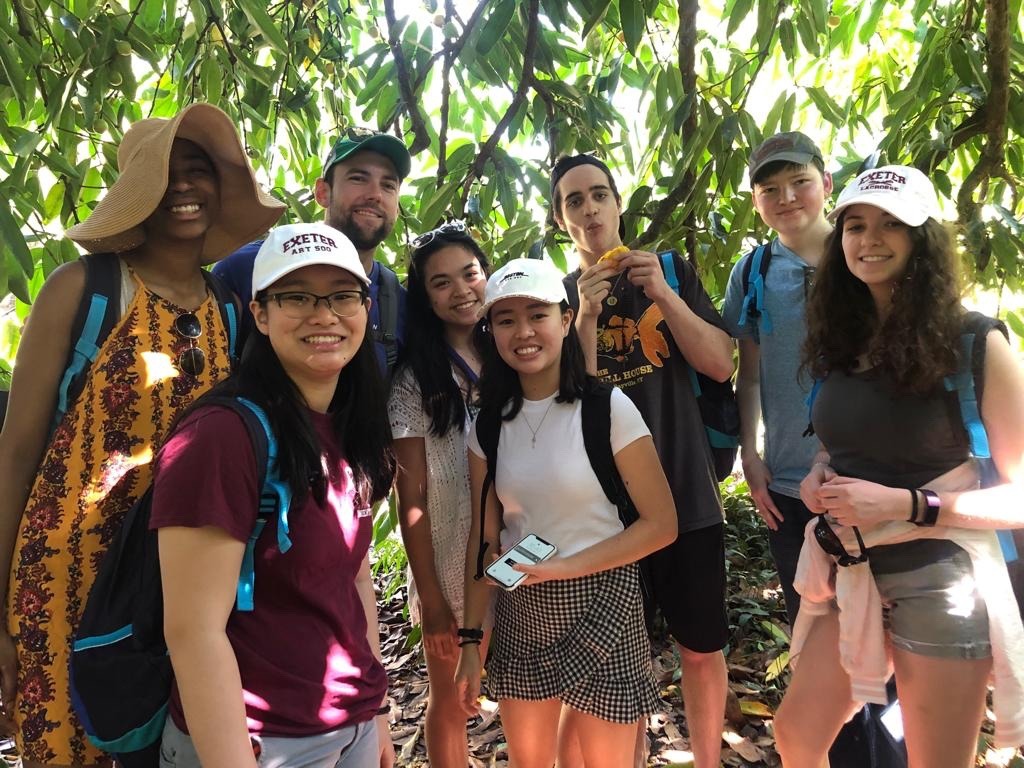
Woods Hole
A group of 10 Exonians dropped anchor in what’s known as a marine biologist’s playground, Woods Hole, Massachusetts. Led by Science Instructor Sydnee Goddard, the weeklong trip was fully funded by a donor. The biology-based program gave students the opportunity to conduct experiments focusing on embryo development in frogs and fruit flies, study color perception in nature and work on a DNA sequencing project. The group toured the labs at the University of Chicago-affiliated Marine Biological Laboratory before collecting organisms from nearby bodies of water. Students then took their samples to be photographed under high-powered microscopes for analysis.
